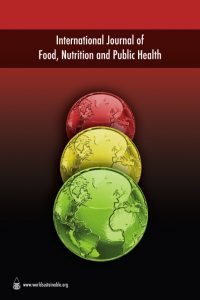Moringa Oleifera leaf consumption on the vitamin A and haematological status of school children in Ada-East district, Ghana, Mary Glover-Amengor, Richmond Aryeetey, William B. Owusu, Prof. Edwin Afari and Prof. Alexander Nyarko
 Mary Glover-Amengor*
Mary Glover-Amengor*
Council for Scientific and Industrial Research-Food Research Institute, Accra, Ghana
Email: mayamen11@yahoo.com
Richmond Aryeetey
Senior Lecturer, Nutritional Sciences School of Public Health, College of Health Sciences, University of Ghana, Legon
William Bruce Owusu
Senior Lecturer, Nutrition Department of Nutrition and Food Science, University of Ghana, Legon
Edwin Afari
Professor of Epidemiology School of Public Health, College of Health Sciences, University of Ghana, Legon
Alexander Nyarko
Professor of Pharmacology School of Pharmacy, College of Health Sciences, University of Ghana, Legon
ABSTRACT
Background: Vitamin A deficiency (VAD) could be prevented by the consumption of pro-vitamin A (β-carotene)-rich Moringa oleifera (M. oleifera) leaves. M. oleifera grows well in many developing countries, and dried leaves also retain a high percentage of β-carotene on storage; they could thus serve as an excellent, convenient source of this pro-vitamin A carotenoid. This study assessed the efficacy of the supplementation of dried M. oleifera leaves on the vitamin A and haematological status of children in Ada-East district, Ghana.
Methodology: Children aged 5–12 years were supplemented three times a week at 0.2 g/kg bodyweight for nine weeks. Background data were collected on the socio-demographic status of the children. Data were collected on vitamin A and haematological status of the children at baseline and at the end of the study. Malaria and hookworm morbidity were also assessed at baseline and at the end of the study.
Results: There was a significant increase in mean serum vitamin A levels after supplementation (end of study) in the intervention group (p,0.05), but not in the control group. Haematological parameters Haemoglobin (HGB), Red Blood Count (RBC), Haematocrit (HCT), Mean Corpuscular Volume ( MCV) did not show any significant changes in either group (p,0.05). A bivariate analysis, however, showed a significant association between vitamin A and haematological indices in the intervention group, but not in the control group.
Conclusion: M. oleifera leaf consumption significantly increased the vitamin A status of children in Ada-East district, Ghana, and has the potential of increasing the haematological status of children. It could thus play a major role as a food-based strategy in vitamin A deficiency control.
Keywords: Moringa oleifera leaves; Vitamin A deficiency; Intervention; β-carotene. Ghana, Vitamin A status

